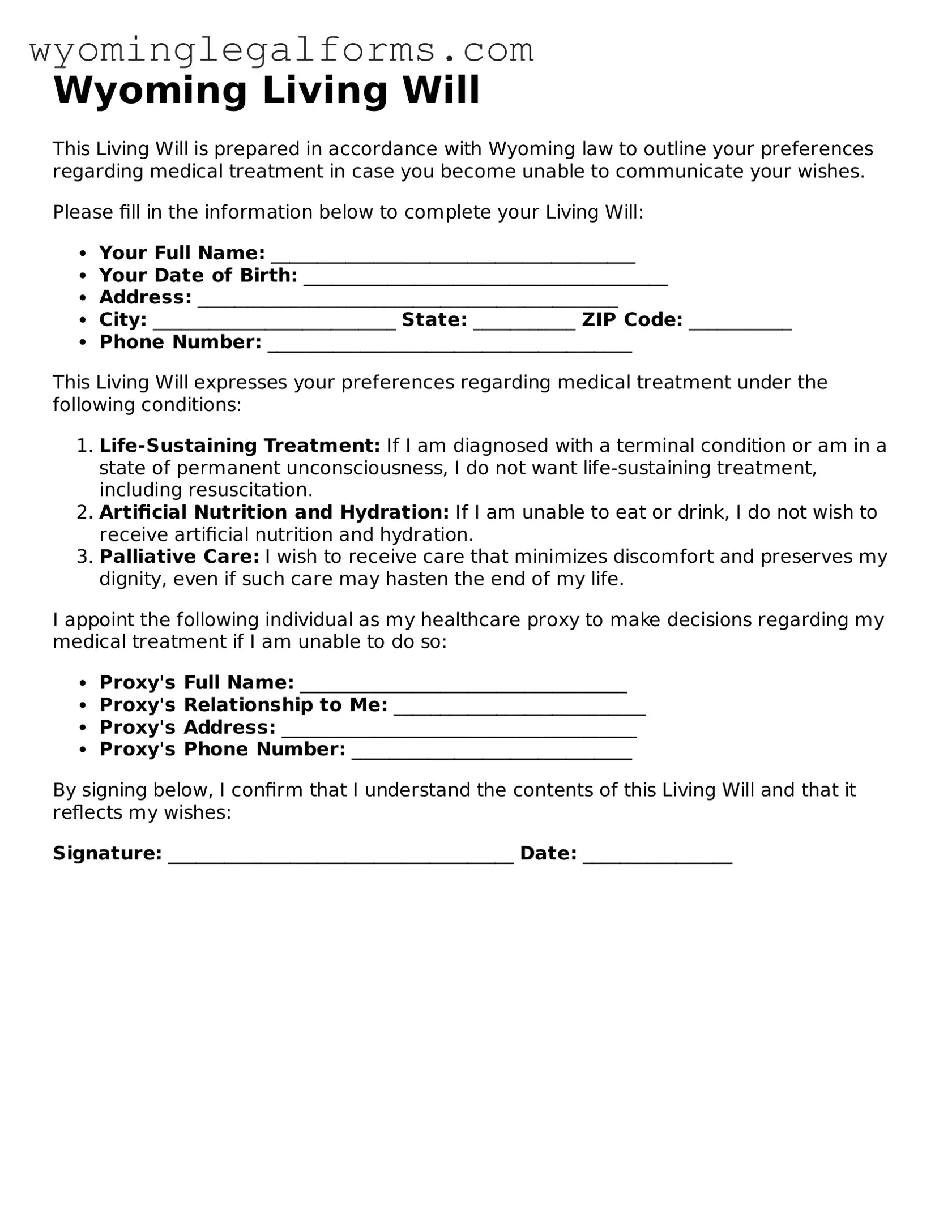What is a Living Will in Wyoming?
A Living Will is a legal document that allows individuals to outline their preferences for medical treatment in situations where they may be unable to communicate their wishes. In Wyoming, this document typically addresses life-sustaining treatments, such as resuscitation and mechanical ventilation, ensuring that a person's healthcare decisions are respected even when they cannot speak for themselves.
Who can create a Living Will in Wyoming?
Any adult who is of sound mind can create a Living Will in Wyoming. This means that individuals must be at least 18 years old and capable of understanding the nature and consequences of their decisions regarding medical treatment. It is advisable for anyone considering a Living Will to consult with a healthcare provider or legal professional to ensure that their wishes are clearly articulated and legally binding.
How does one complete a Living Will form in Wyoming?
To complete a Living Will in Wyoming, individuals must fill out a specific form that includes personal information, details about medical preferences, and signature lines. The form should be signed in the presence of two witnesses or a notary public to ensure its validity. It is crucial to carefully consider the medical scenarios outlined in the document and to discuss these wishes with family members and healthcare providers for clarity and understanding.
Can a Living Will be changed or revoked in Wyoming?
Yes, individuals have the right to change or revoke their Living Will at any time, as long as they are mentally competent. To revoke a Living Will, one can simply destroy the document or create a new one that explicitly states the revocation of the previous version. It is important to inform family members and healthcare providers about any changes to ensure that one's latest wishes are known and respected.
What happens if there is no Living Will in place?
If an individual does not have a Living Will in place, healthcare providers will typically follow standard medical protocols in emergencies. This may lead to unwanted treatments being administered, as family members may have to make difficult decisions without knowing the person's preferences. Without a Living Will, the decision-making authority may fall to family members, which can sometimes lead to disagreements and added stress during challenging times.
Is a Living Will the same as a Power of Attorney?
No, a Living Will and a Power of Attorney are not the same. While both documents relate to healthcare decisions, a Living Will specifically outlines an individual’s wishes regarding medical treatment, whereas a Power of Attorney for healthcare designates someone else to make medical decisions on behalf of an individual if they are unable to do so. It is often beneficial to have both documents in place to ensure comprehensive planning for healthcare needs.

